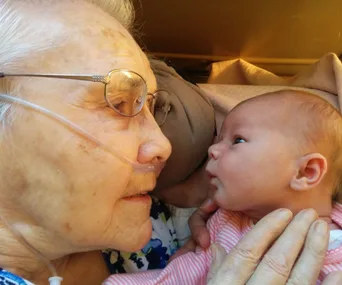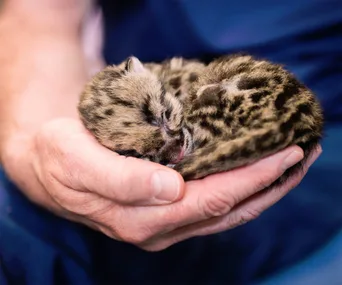Angelo and I had been together for 20 years and married for 15 when I fell pregnant.
We were delighted and enjoyed every moment of it. I felt really well and continued to work, socialise and be active. While I loved my job as a group marketing manager, I was really looking forward to becoming a mum.
Three weeks before my due date, early on a Sunday morning, my waters broke.
After four hours of contractions I had an epidural and, seven hours after labour began, our daughter Bianca arrived.
She weighed 2.7kg, scored 9/10 and 9/10 for her APGAR tests and was described in the medical reports as a well and vigorous baby girl, born after an uncomplicated labour.
But just two hours later, when we were still in the labour suite, Bianca stopped breathing. There was no noise — she just went white.
We pressed the emergency button, a midwife rushed in — followed by all the other staff that were paged — swooped her up and took her to the nursery, where she was resuscitated with oxygen via a mask and chest compressions.
During this time Angelo watched from the nursery, while I was left in the birthing suite on my own for 25 minutes, wavering between feelings of despair, that the worst outcome would eventuate, and clinging onto my belief that we’d have the best result.
After 23 minutes a slight respiratory effort was reported and by the time she was three hours old Bianca’s colour had returned and she was breathing properly.
The doctors told us they thought Bianca had had mucus in her mouth and had forgotten how to swallow.
But as she’d stopped breathing for so long, Bianca needed extensive testing for tissue damage and major organ function.
At midnight she was collected by a neonatal unit and taken to a children’s hospital where she stayed for nine days, wired up to various machines and monitors. Finally, after six days, we were able to hold her again.
It was a hard week. I was still a patient at the hospital where I’d given birth, and had haemorrhoids and painful stitches, was hooked up to a catheter for three days and was at risk of mastitis.
Angelo could only take the day after Bianca’s birth off work, so every morning I’d travel by taxi the 10 kilometres to Bianca’s hospital, where Angelo would meet us in the evening and take me back to my hospital.
No-one could come onto the ward so I was often alone, but we felt immeasurable support and love from our family, friends and large Italian community.
Fortunately, after all the tests, Bianca was given the all-clear and returned to the hospital I was at, where we stayed for five days of mothercraft.
Breastfeeding had been delayed due to the separation and I’d had to express my milk.
We were just mastering breastfeeding when I started bleeding blood clots the size of a saucer.
I needed an emergency dilatation and curettage (D&C) and then, once again, had to wait for my milk to come.
Breastfeeding was shaky at first but we persevered, and when she was just over three weeks old, we finally took our baby home.
Throughout this introduction to parenthood, Angelo and I remained positive. Even the medical staff commented on how mature and calm we were. It was just one of those mysteries, but we had faith that everything would turn out well.
Our little angel is now 15 months old and Angelo and I love our family life.
Bianca was hooked up to a mobile breathing monitor for the first five months but there have been no recurring incidents.
She has reached all her milestones, some earlier than expected, and is a happy toddler who sleeps well and loves talking, dancing and music, socialising with our loving neighbours, mixing with her grandparents and nephews and family and reading her books.
I am healthy and have adjusted easily to motherhood. I’m still on maternity leave and manage to squeeze in exercise, community and voluntary work and am partway through writing my second book.
Although I enjoyed my glamorous pre-mum career, I feel privileged to have my new 24/7 job — which does not seem like work, it’s a job of love — with Bianca and all the challenges life throws at me.



